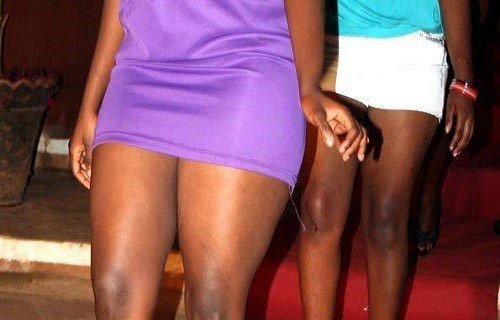Obafemi Awolowo University’s leaked dress code reflects a troubling obsession with morality over education. This op-ed calls for urgent reforms in priorities and governance.
My alma mater, Obafemi Awolowo University, Ile-Ife, has recently been in the news for what can only be described as a masterclass in how not to major in minors.
First, in June 2025, the University Council approved a revised dress code that reads like a manual for moral fascism. Then, after the document went viral and attracted widespread condemnation, the university issued a damage-control press statement, claiming what was in circulation was not the official version approved by the Council.
The leaked code prescribes rustication for one semester for heavy make-ups, rumpled and dirty clothes, multi-coloured braids for female, dreadlocks, unconventional wearing of face cap, off-shoulder clothes, haircuts with inscriptions, nose, mouth, eye, extra rings, and tattoo/indelible markings for male.
Two semesters of rustication await students guilty of coloured hair styles or sprangled hair style for male and other such infractions.
I have read both the Council decision extract dated 13th June 2025 and the university’s subsequent disclaimer of 25th July 2025. Frankly, I find the entire episode appalling—not just as an alumnus of this once-great institution, but as a Nigerian who understands the enormity of challenges facing our educational system.
“When universities major in minors, society pays the price in ignorance.”
Promising to release an official dress code after their previous version proved embarrassing shows the authorities at Ife continue to miss the point.
The problem is not about the version of the dress code in circulation but the existence of such an elaborate moral policing mechanism in the first place.
When those who are supposed to be seeking practical solutions to societal problems spend productive hours deliberating over whether it is appropriate for students to wear tattered jeans, something is profoundly disturbing about the intellectual space in our country.
A Pattern of Misplaced Priorities
Unfortunately, this is not an isolated incident. It is part of a troubling pattern across Nigerian universities obsessed with regulating student appearance rather than improving academic standards.
Some have even ventured into issuing decrees on relationships and social interactions. The result is a system where young adults, old enough to marry and make life-altering decisions, are treated like children.
Meanwhile, the leaked Ife document followed months of committee deliberations and legal reviews. It concluded that indecent dress should replace sexually provocative dresses in their moral lexicon.
“The female body becomes a site of moral panic and institutional control.”
The Council sat for two days—Tuesday 3rd and Wednesday 4th June 2025—according to their document. Imagine if that energy had been channelled into improving academic standards or updating curricula.
Instead, administrators spent their time crafting elaborate punishment matrices for unconventional wearing of face cap by university students.
Moral Policing Disguised as Cultural Preservation
Perhaps the most disturbing aspect of the leaked dress code is its selective interpretation of culture and decency.
The university’s disclaimer promises an official version directed at enhancing academic sensibilities, social decency and ethical standard in line with the University’s motto.
But how does policing a female’s appearance promote academic sensibilities?
This same university prohibits dreadlocks—a hairstyle with deep cultural and spiritual significance in many African traditions—while claiming to preserve cultural ethos in line with its motto: For learning and culture.
That is not cultural preservation; it is narrow-mindedness imposed on young people who should be encouraged to express their cultural identity.
In Yoruba symbolism, cowries represent prosperity and femininity. Do the Ife lawgivers know that?
A Larger Crisis of Governance and Misplaced Power
A careful reading of the dress code reveals something deeper. While male students face restrictions around hairstyles and general appearance, female students bear the brunt of this moral anxiety.
“It is easier to regulate skirt lengths than to improve teaching quality.”
From backless clothes to micro/mini/skimpy dress, the female body becomes a site of moral panic and control. This reflects a broader societal problem where women’s bodies are treated as inherently problematic.
The university argues that certain forms of dress obscure identification and pose serious security problems. That might hold water if our universities were safe environments.
But these are institutions where cultists operate with impunity, exam malpractice is rampant, Yahoo Boys thrive, and lecturers harass students without consequence.
If safety were the real concern, they would invest in infrastructure, create safe spaces, and implement effective systems—not police hemlines.
Let me paint a picture of Nigeria’s university system today: dilapidated hostels, overcrowded classrooms, outdated libraries, and brilliant minds stifled by archaic methods.
Rather than act as centres of inquiry and scepticism, our universities have become bureaucracies where the number of administrators often outnumbers academic staff fivefold.
University Councils are now filled with politicians rather than experienced professionals. In other countries, councils are peopled with top-tier thinkers and leaders. Not here.
“Our universities must choose: institutions of learning or centres of moral surveillance.”
As I wrote in a two-part column, The Case Against ASUU, in August 2022, the solution is not just about lecturers’ salaries. It’s also about research grants, tech access, and updated journals.
But councils obsessed with Bomb shorts lack the vision to tap donations, secure endowments, or attract quality academics.
Universities or Moral Surveillance Camps?
If we are to develop, Nigeria must rethink the governance of higher institutions. We don’t need people issuing dress decrees in places meant to challenge norms and provoke thought.
This obsession with superficial fixes is symptomatic of leadership failure across the country.
Just last Tuesday, the U.S. Mission in Nigeria tweeted: While Nigerians are urged to endure economic hardship ‘like labor pains,’ some governors are splurging billions on new government houses. They called out this fiscal irresponsibility, which erodes public trust.
This mindset cuts across all levels of society.
Last Thursday on the outskirts of Jos, I saw a soldier using scissors to cut the dreadlocks of a young man at a military checkpoint. Easier to cut hair than fight armed criminals.
That’s why it’s easier to regulate skirt lengths than improve teaching quality on campus.
We all know universities that rank poorly globally, yet boast about moral standards. Our institutions must understand the difference between education and indoctrination, between guidance and control.
Students need universities that prepare them for complexity, not ones that shelter them from diversity.
Let me be clear. I abhor indecency. And I say this as the head of the youth department in my parish. But universities are not Mosques or Churches.
They are for critical thought, sometimes even rebellion. The energy wasted on hairstyles and makeup should address real issues: poor funding, outdated curricula, decaying infrastructure.
Reviving the Spirit of Great Ife
As I write, I remember the Great Ife I once knew—an institution of intellectual rigour and progressive thinking.
No one was criminalised for unwelcome touching, kissing and hugging at Mozambique or Moremi Halls.
And yet, most of us turned out fine.
Administrators must stop majoring in minors. Focus on what matters: educating minds for today and tomorrow.
Our universities must choose what they want to be: Institutions of higher learning or centres of moral surveillance. They cannot be both.
Mission X Accomplished!
Though Voice of Nigeria (VON) has apologised for last Saturday’s embarrassment, it’s hard to explain how a reporter would fabricate a story mid-match.
At the 64th minute, Nigeria was trailing Morocco 2–0 in the Women’s Africa Cup of Nations (WAFCON) final. That was enough for a VON reporter to give up on the Super Falcons—and Nigeria.
“Naija no dey carry last.”
He filed a fake story full of imagined quotes: “This is a victory for every Moroccan girl,” said Jorge Vilda. Nigeria’s manager “admitted defeat.” Rasheedat Ajibade “vowed to come back stronger.”
But reality hit back.
The Falcons fought back to win. That was their 10th WAFCON title in 13 editions. Vintage Naija!
Former Vice President Yemi Osinbajo captured it best on Facebook:
“When Nigeria arrives quietly, it is often because we intend to leave with all the noise… Okoronkwo stepped up… Ijamilusi brought us level… Echegini delivered a set piece signed, sealed, and sent from Abuja… Three goals. One comeback… a trophy that tells its story in green, white, green… Naija no dey carry last.”
What more can anyone add?
Congratulations, Super Falcons!
Rate, Like 👍, Comment💬, share this article, Follow us on our social media handles, and Submit your own story to get featured and earn rewards!







